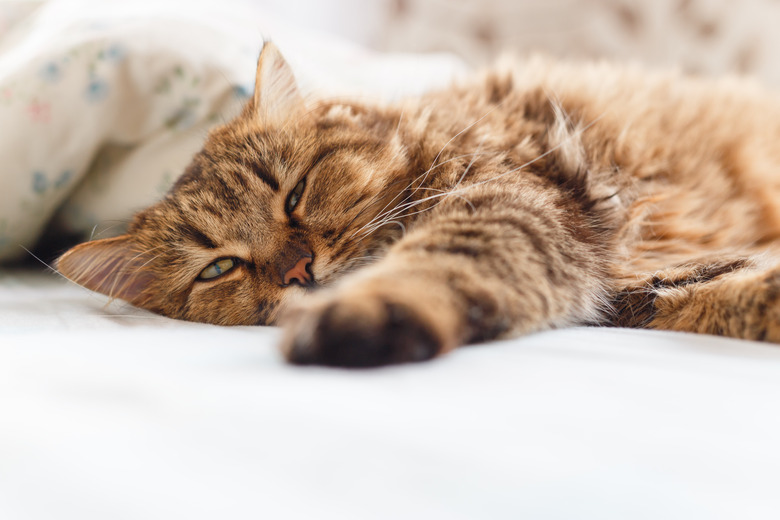Zeniquin For Cats
Although your living room is certainly a far cry from the Serengeti, your cat doesn't know that. She still relies on her wild instincts at times, and these instincts tell her that she must avoid showing any weakness. Luckily for her, you're an astute pet parent who knows when she's not on top of her game, even when she thinks she's cleverly disguising signs of illness. Upon taking her to the vet, you may discover she has a bacterial infection. If so, the vet may send you home with Zeniquin.
Why vets prescribe Zeniquin for cats
Why vets prescribe Zeniquin for cats
Zeniquin is the brand name for the drug marbofloxacin. The medication is an antibiotic that fights certain types of bacteria in soft tissues. It works by preventing bacteria from reproducing, interrupting the process through which bacteria replicate their DNA.
Your vet may prescribe Zeniquin if your cat is suffering from a skin infection, urinary tract infection, or other infection. Although Zeniquin usually works well, your vet may run some tests before recommending it for your cat. These tests help your vet confirm that the particular type of bacteria making your cat sick is one that is susceptible to Zeniquin.
How to give your cat Zeniquin
How to give your cat Zeniquin
Zeniquin for cats comes in pill form and is generally given once a day. The typical dosage is 1.25 milligrams per pound, so you'll need to know how much your cat weighs. A cat weighing 10 pounds, for instance, would receive 12.5 milligrams a day. On occasion, however, a vet can safely prescribe up to 2.5 milligrams of medication per pound.
Remember, however, that these dosage guidelines are general. Your vet's word is the law when deciding how much medication to give your cat, and she may tell you something different. If your vet's recommendation differs widely from the package directions, it's OK to ask her about it to make sure.
Although you'll only have to do it once a day, giving a cat a pill can prove quite the adventure. Cats are sly little devils who excel at squirming, and they generally do not cooperate at pill time. Some also spit pills out after their owners thought they had won the pill battle. If you're feeling brave, you can get some advice on how to give pills to your cat from your vet. You'll make your life much easier, though, if you buy special cat treats designed to hide a pill.
Some cats shouldn't take Zeniquin
Some cats shouldn't take Zeniquin
Just like the medications developed for humans, animal medications are thoroughly tested for efficacy and safety. Zeniquin has passed these screenings, and most cats tolerate it well. It's not for everyone, however.
Kittens less than 1 year old shouldn't take Zeniquin, as it can interfere with their bone and joint growth. Cats with central nervous system problems such as epilepsy should also avoid Zeniquin. Tell your vet if your cat is pregnant or nursing so he can determine whether Zeniquin is safe for her and her babies.
Zeniquin can cause side effects
Zeniquin can cause side effects
Any medication can cause side effects, and Zeniquin is no different. After taking this pill, your cat may become a bit lethargic and lose his appetite. He could also vomit. These side effects are generally mild and should resolve on their own.
More serious Zeniquin side effects require an emergency trip to the vet. These include:
- Seizures
- Depression
- Dizziness
- Behavior changes
- Trouble breathing
- Dilated pupils
How fast does Zeniquin work?
How fast does Zeniquin work?
Cats can take Zeniquin for up to 30 days at a time but may not need that much time. Most stay on Zeniquin for two or three days after their infection clears up, but urinary tract infections typically require a 10-day regimen. Your vet will tell you exactly how long your cat needs to take this medication, but she should start to feel better within two or three days.
If your cat hasn't improved at all after taking Zeniquin for five days, call your vet. You may need to reevaluate your cat's condition and consider other treatment options.
Always check with your veterinarian before changing your pet's diet, medication, or physical activity routines. This information is not a substitute for a vet's opinion.
